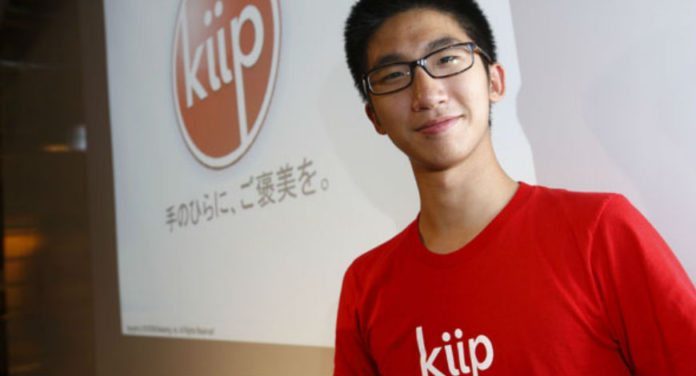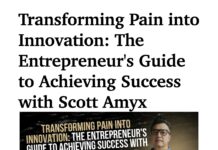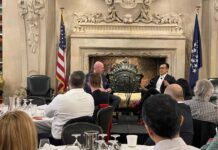“Visionaries, game changers and disruptors all share one thing in common — their ability to embrace the uncomfortable. Strive is for anyone who wants to disrupt the status quo”
— Brian Wong, CEO of Kiip and Author of The Cheat Code
Coming from Brian Wong, it makes a lot of sense. Brian has repeatedly disrupted himself, stretched himself, went out of his comfort zone, and hasn’t flinched to experiment.
Brian has impeccable credentials. He got his high school diploma at 14 and graduated from University of British Columbia at 18. He founded his company while still earning his graduate degree and was already a millionaire by the age of 20. Brain’s most successful venture to date, Kiip, is set to record $20 million in revenues this year. So, he surely knows a thing or two about succeeding.
Formative Years
Brian was born on April 14, 1991 in Vancouver where he spent most of his childhood. His parents immigrated to Canada in 1980s. Brian draws a lot of inspiration from his parents. His mother is a nurse and father an accountant. Both of them started right from the bottom and worked their way up. Brian has been a close witness to hard work, entrepreneurial spirit, and an unmatched work ethic right at his home. He rightly credits his entrepreneurship and success to his upbringing that also made him believe very strongly in his capabilities.
Finding Early Success with Digg
While still at the university, Brian had realized the importance of networking with people. In fact, he always had huge confidence in his networking skills. He was regularly seen at startup meets and congregations, intermingling with peers, angel investors, and venture capitalists.
At one such dinner party in San Francisco in 2009, Kevin Rose, Digg’s CEO, noticed 18-year old Brian who shouldn’t be there as per the invite list. Rose soon discovered Brian is a regular at the party circuit and was great at networking. Genuinely interested in business development, Brian would meet with different people asking them probing questions. He wanted to get not just his basics right but the finer aspects of the trade as well. Brian firmly believes that if you are genuinely interested, there is no dearth of people willing to share their experiences.
Brian had met Kevin Rose quite a few times at conferences and parties and doggedly pursued him everywhere, admittedly to the edge of being creepy. However, Brian believes it is very important to show a real intent and passion for something. And that was his honest intention in pursuing Rose.
Eventually, Brian emailed his CV to Rose for a job at Digg, one of the hottest startups at that time. Post his interview, Brian landed a job the very same week. Brian’s uncanny ability to network and get people excited about ideas won him great respect. Brian says you must believe that you really belong there even if you don’t. Even if something looks out of reach, one must absolutely try and stretch to get it. “Don’t be afraid of what you can’t do. Strive tells us how we can achieve more by doing things that we thought we couldn’t do.” Brian says.
First Major Setback
Only five months after Brian had joined Digg, the company folded and Brian was laid off. It wasn’t easy for the young man to be laid off from the job he had worked so hard to landed.
Brian was sad but hopeful. Instead of ruing his lost job, Brian tried to leverage the situation the best way he could. He managed to continue his participation at conferences as Digg’s representative, doing what he did best—networking with people. Eventually, Brian had to leave the company and return to his parent’s home in Vancouver. Still only 19-years old, with plenty of youthful energy and a go-get-it attitude, Brian started thinking about his future plans.
The Birth of Kiip
Kiip was an epiphany.
On a long flight, Brian noticed a large number of people completely engrossed on their smartphones. Most of them were playing games on their phones. He noticed that people felt a sense of achievements clearing levels or completing a task in the games. They were, however, periodically irritated by the intrusive and unwanted ads during the games. On one hand, people were really enjoying the games but on the other hand, intermittently irritated by the ads.
An idea struck Brian—what if the unwanted ads make way for something people really want and enhances their gaming experience. What could be that something that really augments the sense of achievement of completing a level in a game? Hardly anyone would mind getting a reward in the form of discount coupons for a relevant potential purchase. If completing a level at your favorite game brings along a nice cup of coffee, that’s more than welcome.
Brian knew people were ready to pay for a version of games without the ads. So, his idea, where not only was the game free, but the user could potentially earn some decent rewards while playing was a brilliant proposition.
Bringing in Venture Capital
Brian immediately got down to figuring out the two sides of the equation: the game app developers and advertisers. He shared his idea with a number of people, some of whom made him get in touch with interested VCs.
Brian, however, had no idea how VC funding worked, and he was completely honest with it. But, his unquenchable thirst for knowledge and willing to venture into unchartered territories made him strive. He read a lot, interviewed people, and stretched himself to get a complete knowhow of the working of the VC ecosystem.
In Brian’s words, “Have you ever noticed that there are certain people who seem to get ahead just a bit faster than everyone else? It turns out that it’s not just smarts, hard work but by doing the things most uncomfortable to leapfrog ahead.” This is the premise of Strive.
With his impeccable technology-selling skills, Brian successfully raised capital for his startup. True Ventures wrote Brain a check for $300,000.
Brian’s brilliant networking skills also brought on-board a few respected brands like Vitamin Waters and Pop Chips. Things clicked and Kiip won some of the biggest brands such as McDonald, Unilever, Coca-Cola, Amazon, Victoria’s Secret, Pepsi, Procter & Gamble, and many others. Today, Kiip features more than 4000 brands spanning across the industries. Till now, Kiip has been able to raise VC funding of almost $32 million. Apart from True Venture, some other VCs include Relay Ventures, Hummer Winblad Venture Partners and Crosslink Capital.
Being Disruptive is the Key
Brian isn’t someone to rest on his laurels. He keeps pushing the envelope, ever so harder, because that’s the only way he knows to play.
His attitude is amply demonstrated in his thoughts. “Strive challenges us to do the toughest things. What’s the worst thing that can happen? Fail, learn, grow and succeed,” Brian says. He hasn’t been afraid of experimenting and failing.
When hiring for Kiip, Brian and his team were open to hiring that might turn out to be wrong. The initially hired generalists—people who could fit in one role or the other. Brian and his team learned along the way and now they have built a strong 100-member team. He has been able to get some great talent by offering a great deal of responsibility to these talented folks.
Kiip has extended the ideas of rewarding the app user from games to different types of apps. For example, when a user achieves a goal on a fitness app, he/she gets an award. Similarly, completing a lesson on a learning app is the right moment to award the user.
Brian has also penned a book, titled, The Cheat Code, wherein he elaborates on what it takes to get ahead of the pack.
Future Plans
Already present in North America, South America, Australia, UK, and Japan, Kiip plans to expand internationally. Of course, it is on the constant lookout to bring on board more developers and advertisers.
Keeping true to his philosophy of being disruptive, Brian plans to take these award-linked ads beyond the mobile ecosystem. Connected cars and wearables are the two major areas on his radar.
In the end, if there is one lesson Brian wants you to take home, it is the importance of being bold and striving to achieve the impossible. “Don’t be afraid of what you can’t do. Strive tells us how we can achieve more by doing things that we thought we couldn’t do.”


















